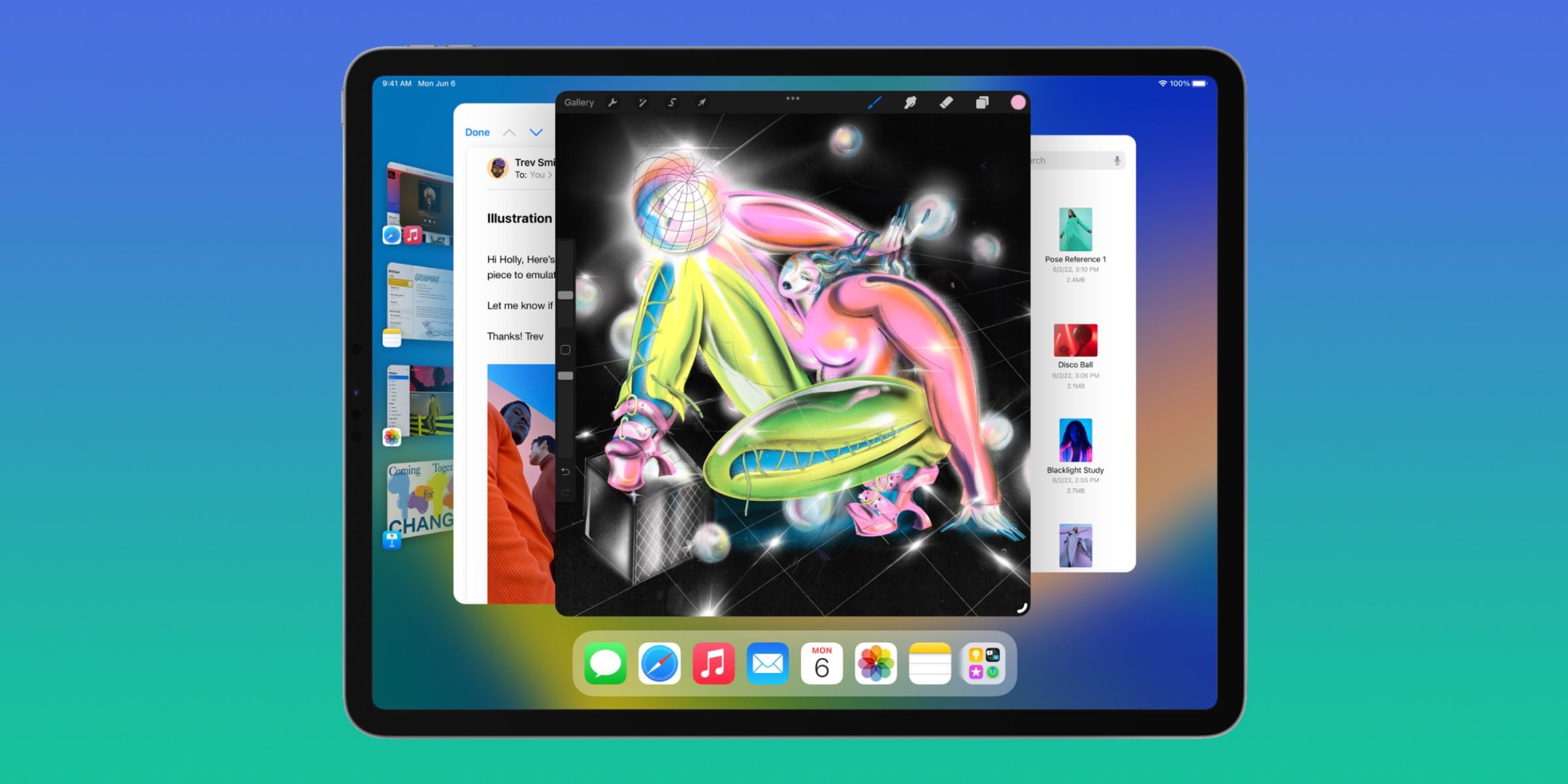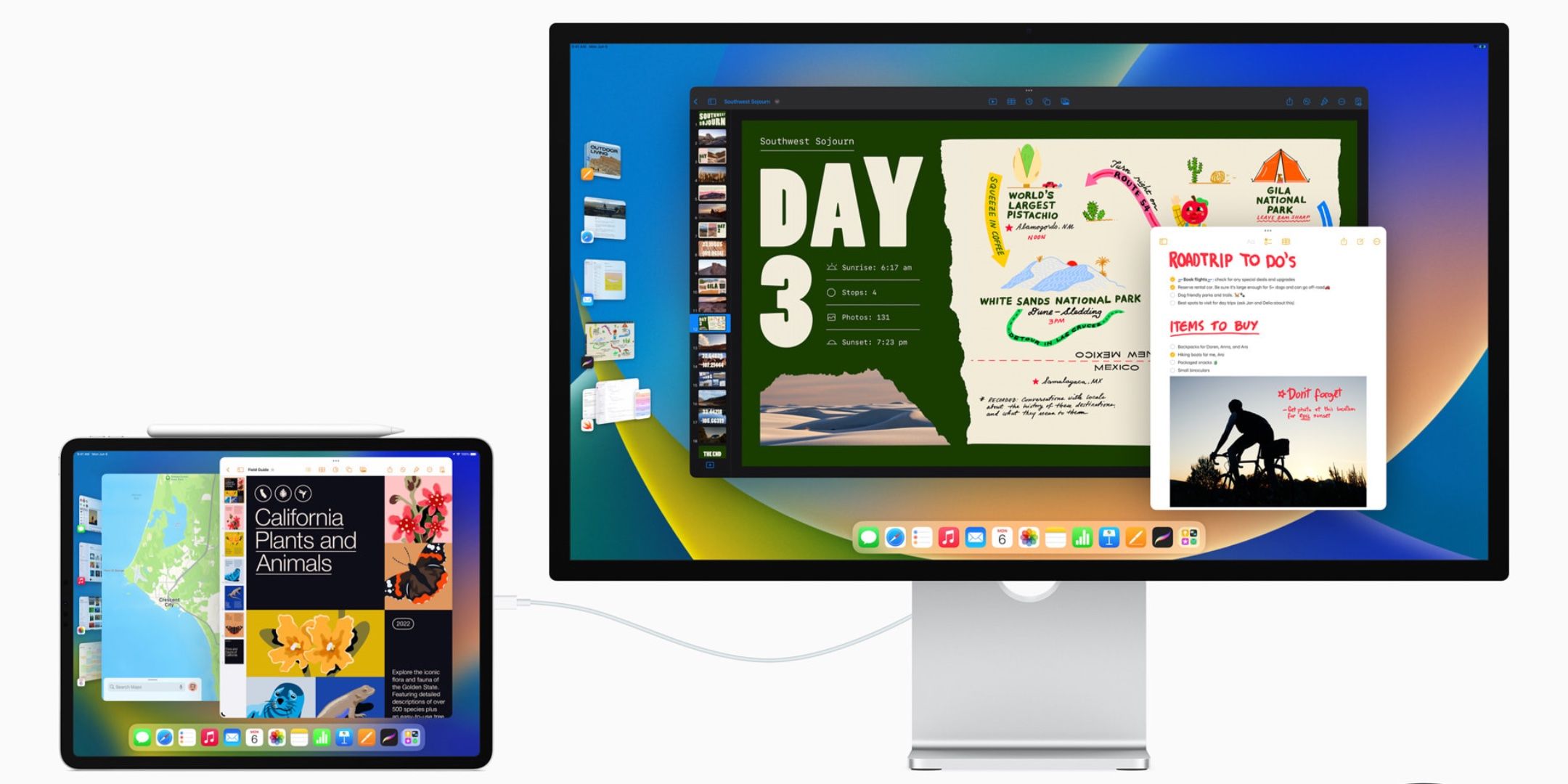Apple is bringing Stage Manager support to more iPads without the M1 chip. The company first announced Stage Manager at the Worldwide Developers Conference in June 2022 but planned to limit the feature to M1-equipped iPads, citing concerns that the user experience on other models did not meet the company's standards. Stage Manager support is something iPad power users might seriously consider when choosing to purchase or upgrade since it brings genuine multi-window support for the first time. In addition, Stage Manager could be crucial to a productive workflow for people trying to use an iPad as their primary (or only) computer.
Though the announcement that the Stage Manager would only come to M1 iPads was a disappointing part of WWDC 2022, it seemed like a justifiable decision. The M1 chip found in the latest iPad Air and Pro models is a laptop-class chip capable of better performance. It makes sense that multi-window support — providing a graphical user interface similar to laptop and desktop computers — requires more processing power. It would also surely require more RAM, and the M1 chip brought Virtual Memory Swap to iPadOS 16. The M1 chip can use Virtual Memory Swap to allocate a portion of the device's storage as RAM to provide a better experience. With these hardware considerations in mind, Apple's choice to make Stage Manager exclusive to M1 iPads made sense.
Apple rolled out iPadOS 16 developer beta 10, and after a quick look at the release notes for the software update, no major changes stand out. However, after updating older devices to the latest iPadOS beta, testers found a notable change — non-M1 iPads were able to turn on and use Stage Manager. Initially, only iPads with the M1 chip could use Stage Manager, and the feature was turned off by default. In addition, the most recent version beta of iPadOS also removed external display support from all iPads. External display support was touted as a flagship iPadOS 16 feature and was included in every developer beta to date but was pulled in the tenth developer beta software version.
Apple Confirms External Display Support Is On Hold
Stage Manager will now support two more Apple chips beyond M1 — the A12X and A12Z. That brings Stage Manager to more iPad Pro models, including the 11-inch iPad Pro (first generation and later) and the 12.9-inch iPad Pro (third generation and later). Though these iPads now support Stage Manager, the feature will only be available on the iPad's built-in display. M1-equipped iPads will regain external display support later this year, but other models are still left out. But what led to the decision to bring Stage Manager to more iPad models?
Apple changed course after seeing significant demand for the feature among other iPad users, it said in a statement to Endgadget. "We introduced Stage Manager as a whole new way to multitask with overlapping, resizable windows on both the iPad display and a separate external display, with the ability to run up to eight live apps on screen at once," Apple told Endgadget. "Delivering this multi-display support is only possible with the full power of M1-based iPads." Though it found that support for eight concurrent windows was impossible on the A12X and the A12Z, these chips could maintain four windows.
"Customers with iPad Pro 3rd and 4th generation have expressed strong interest in being able to experience Stage Manager on their iPads," the statement continued. "In response, our teams have worked hard to find a way to deliver a single-screen version for these systems, with support for up to four live apps on the iPad screen at once." The move is good news for iPad Pro users that haven't upgraded to the M1 model, assuming the user experience is tolerable. Unfortunately, that is yet to be seen since Apple already delayed iPadOS 16 due to the complexity of Stage Manager. Regardless, Apple continuing to respond to and account for consumer requests in recent years is a positive trend that users hope will continue.
Source: Apple Developer, Endgadget


